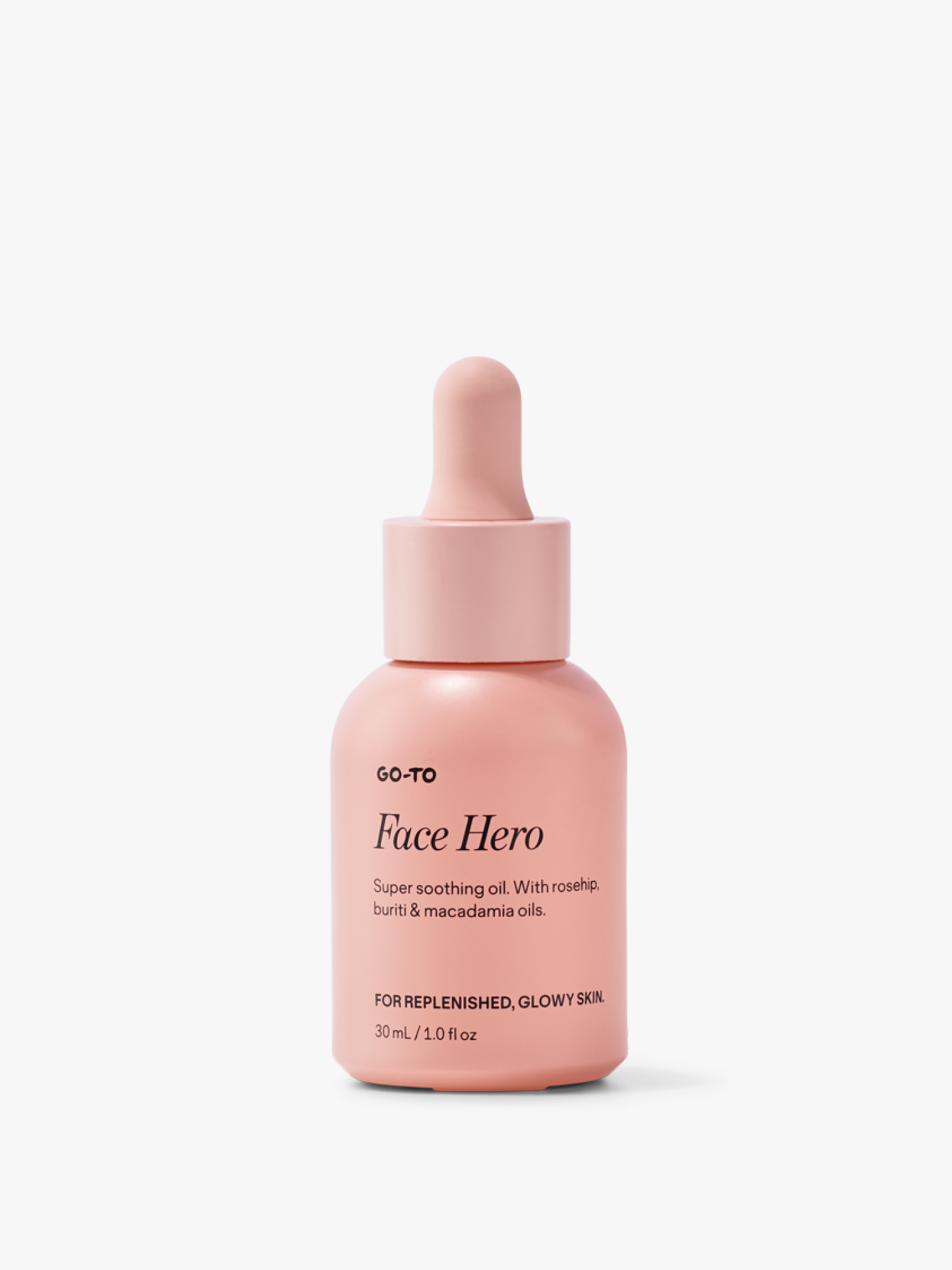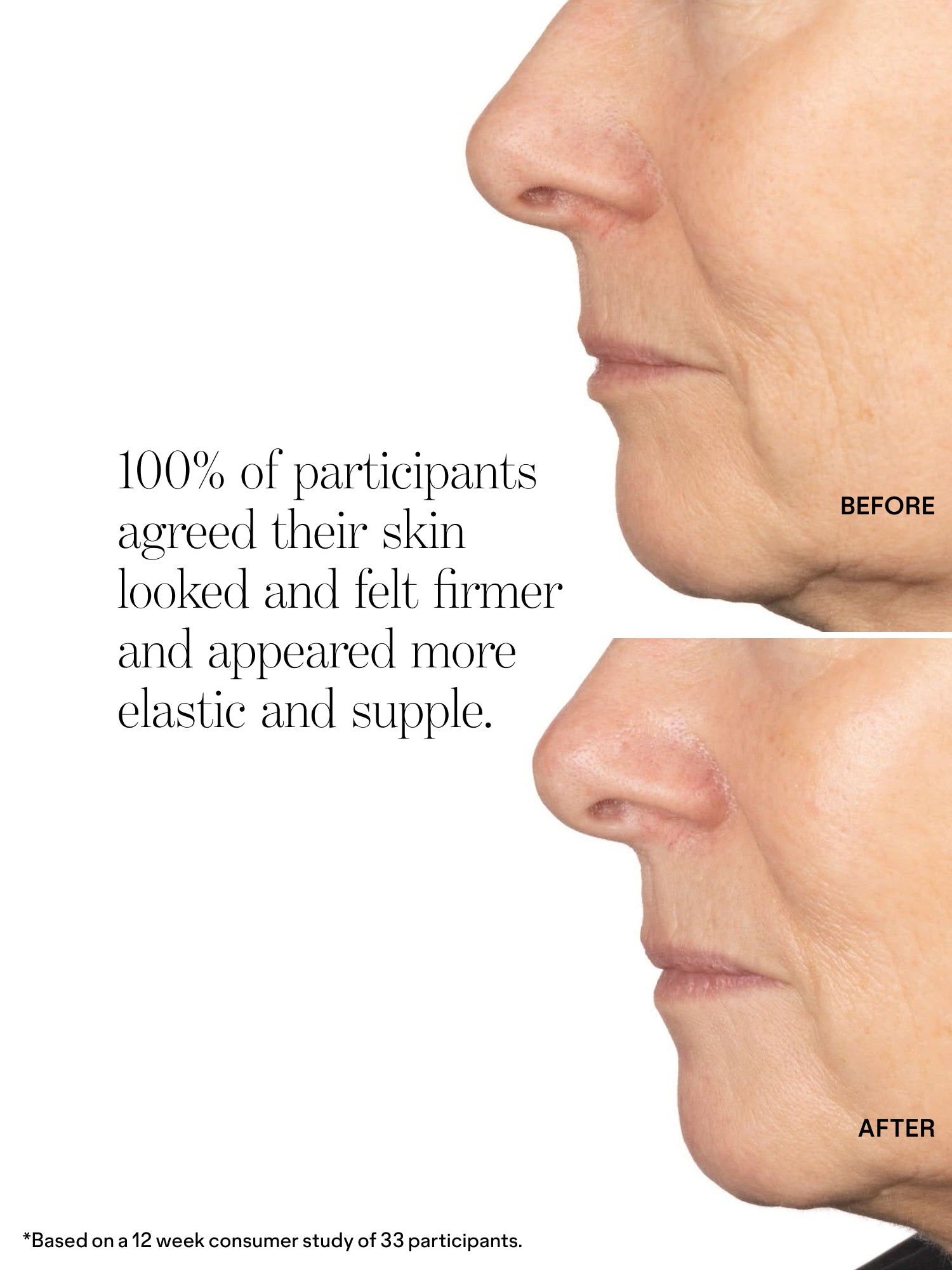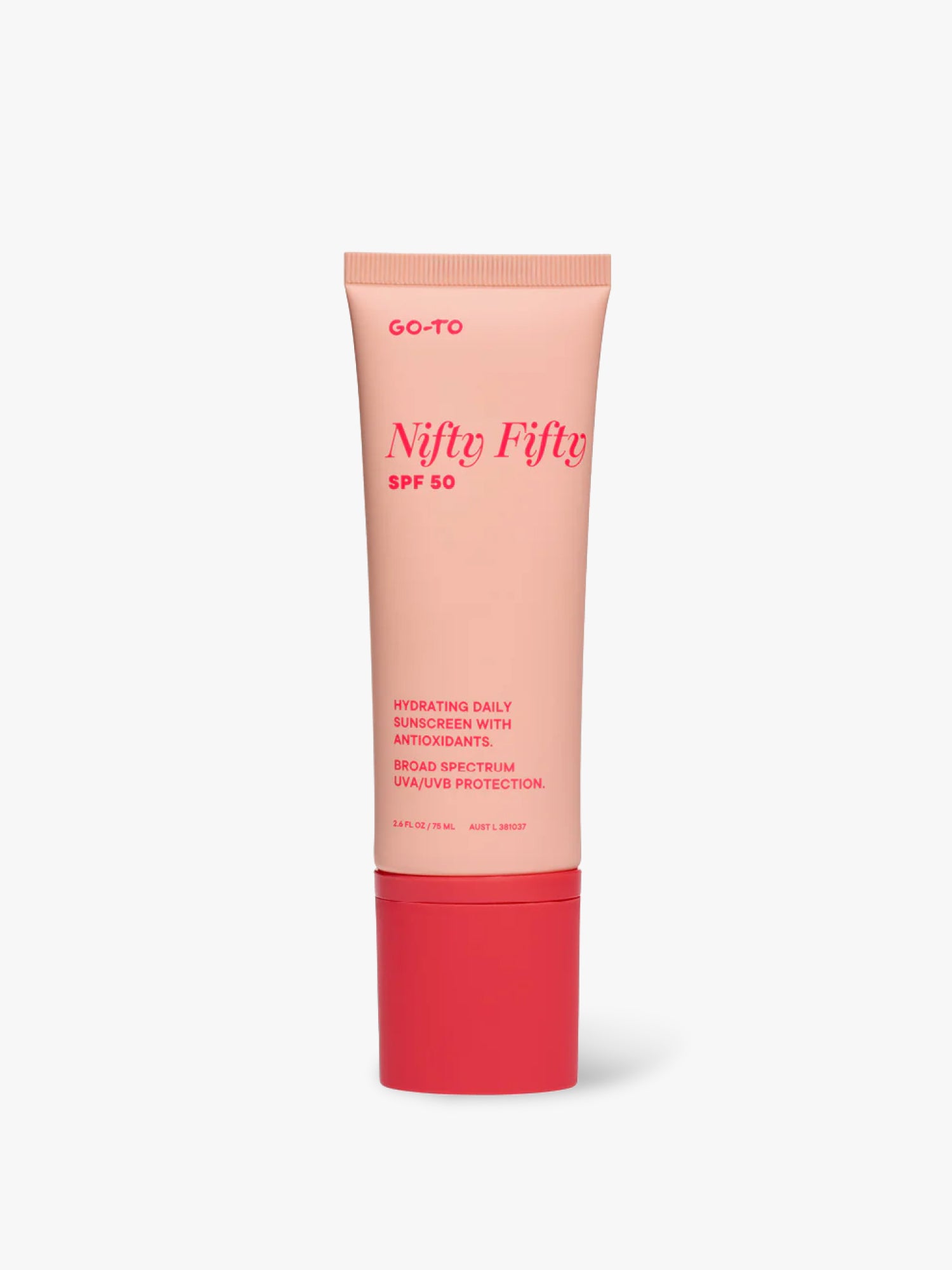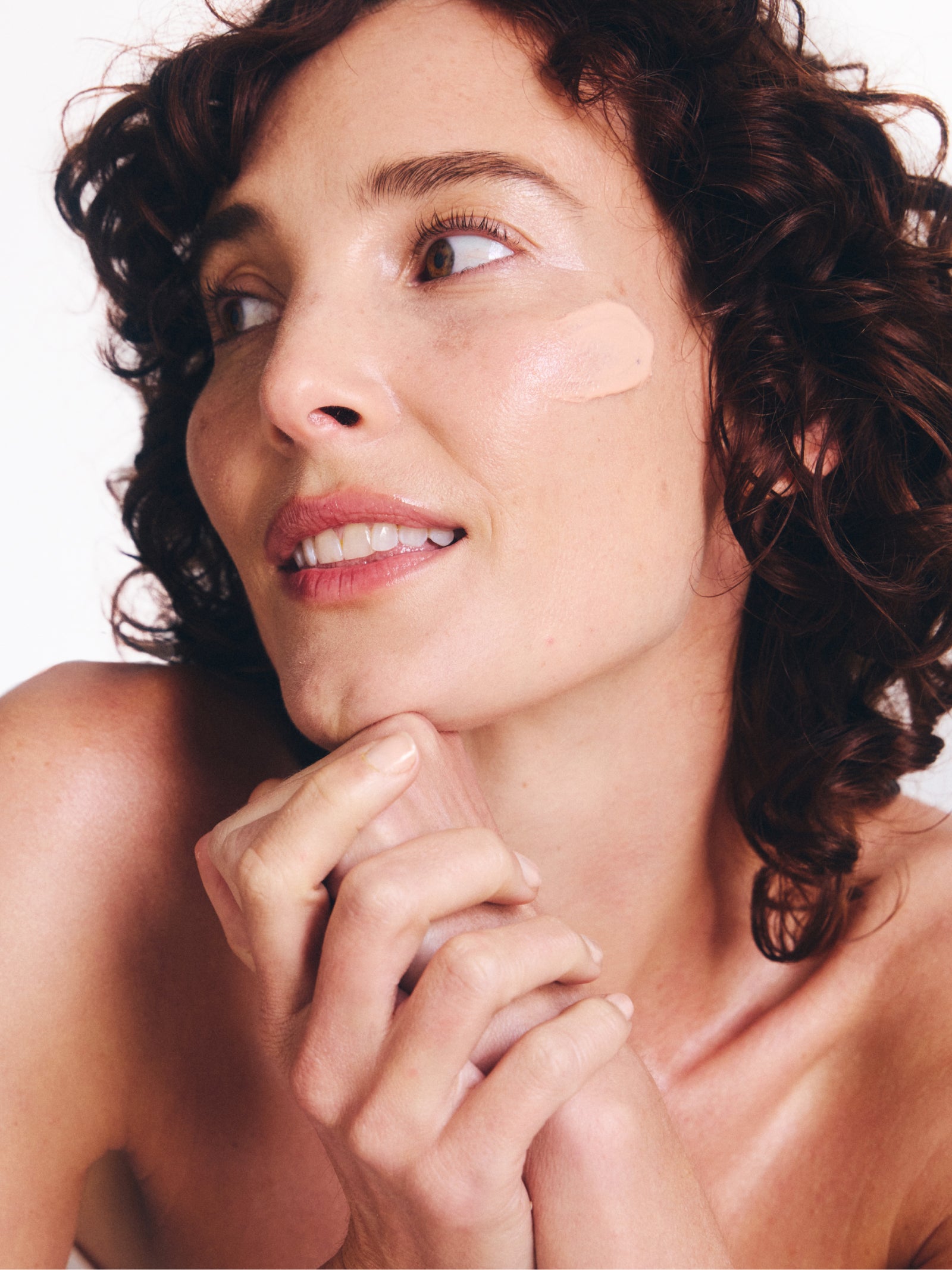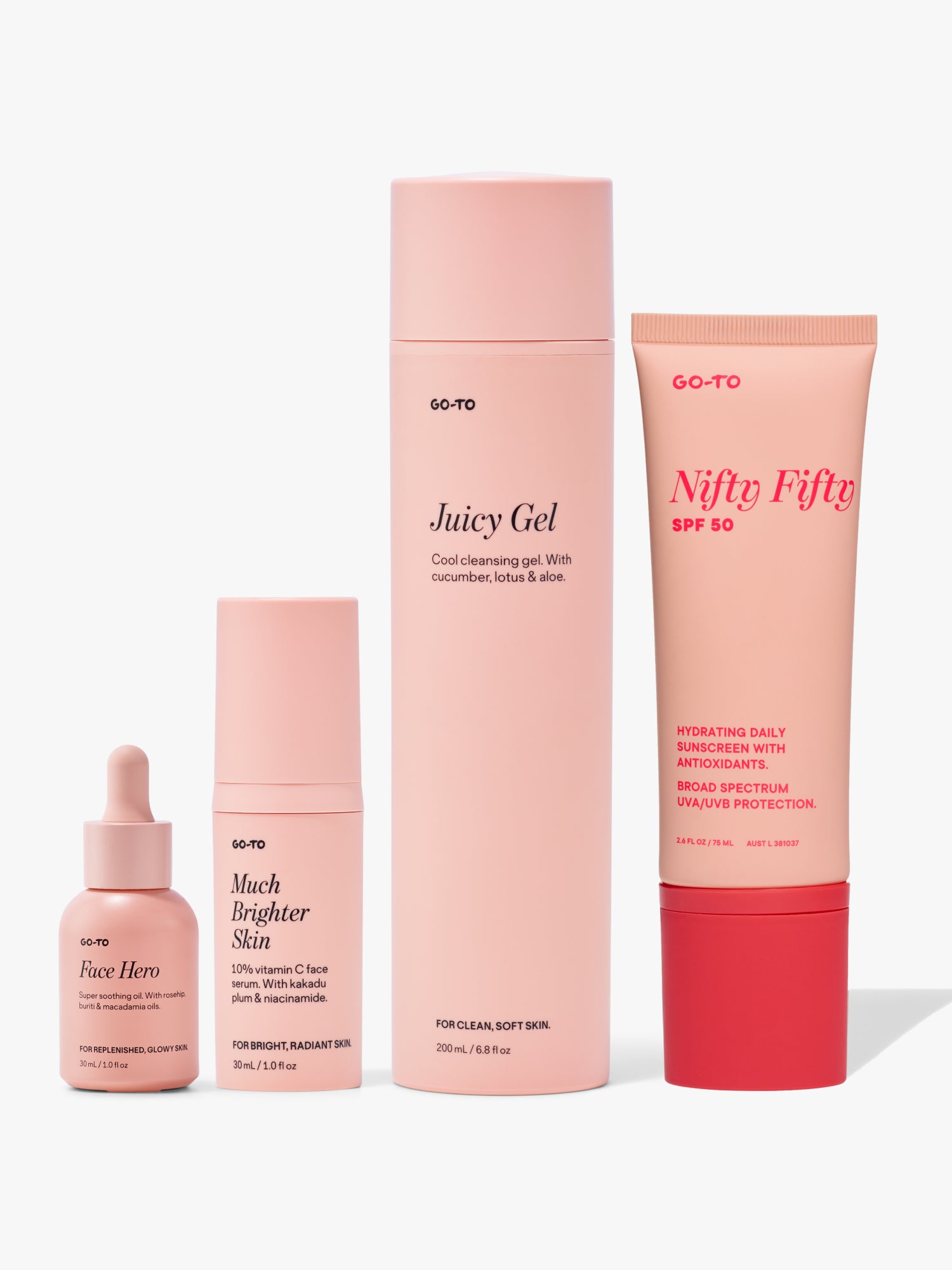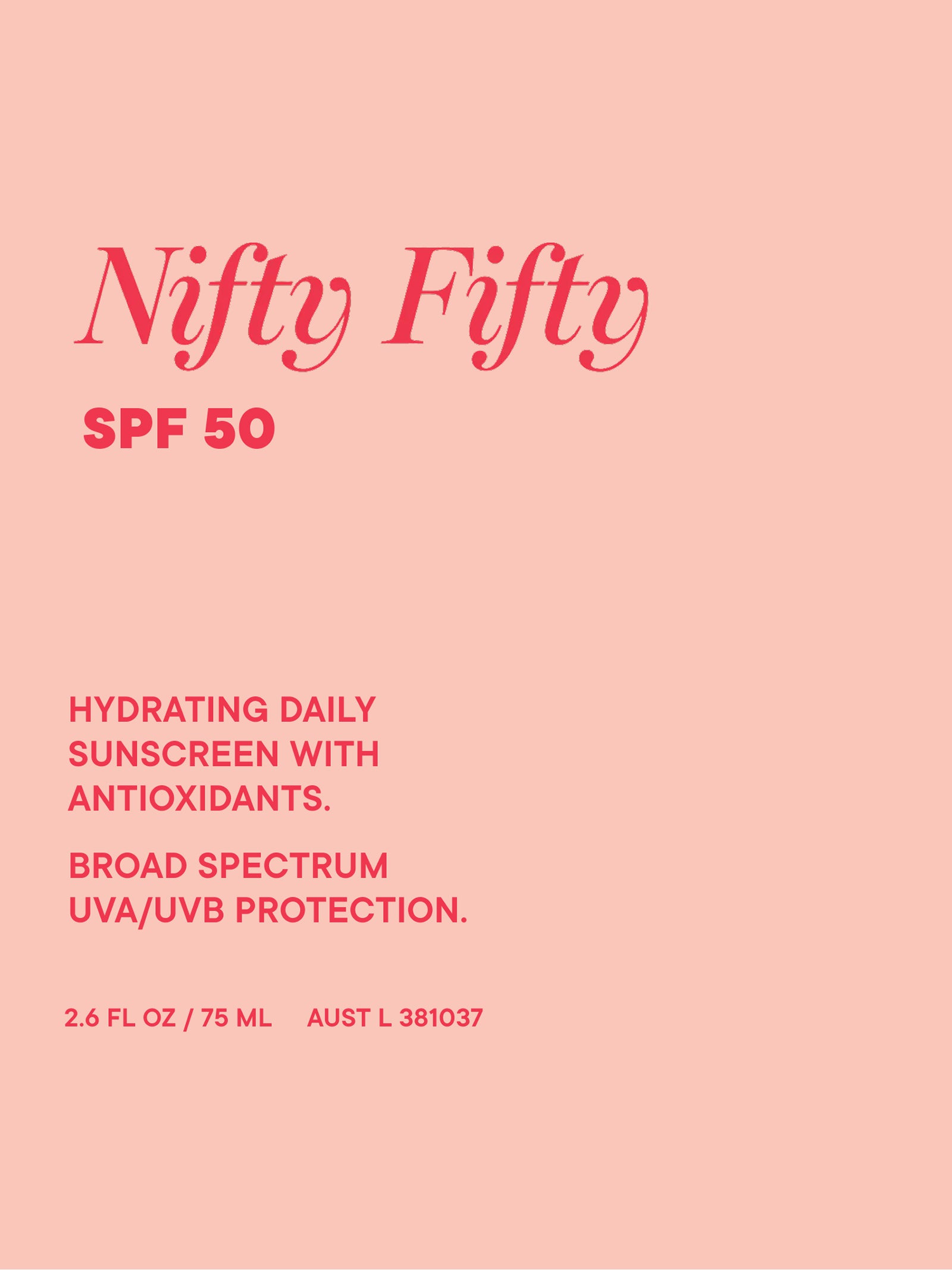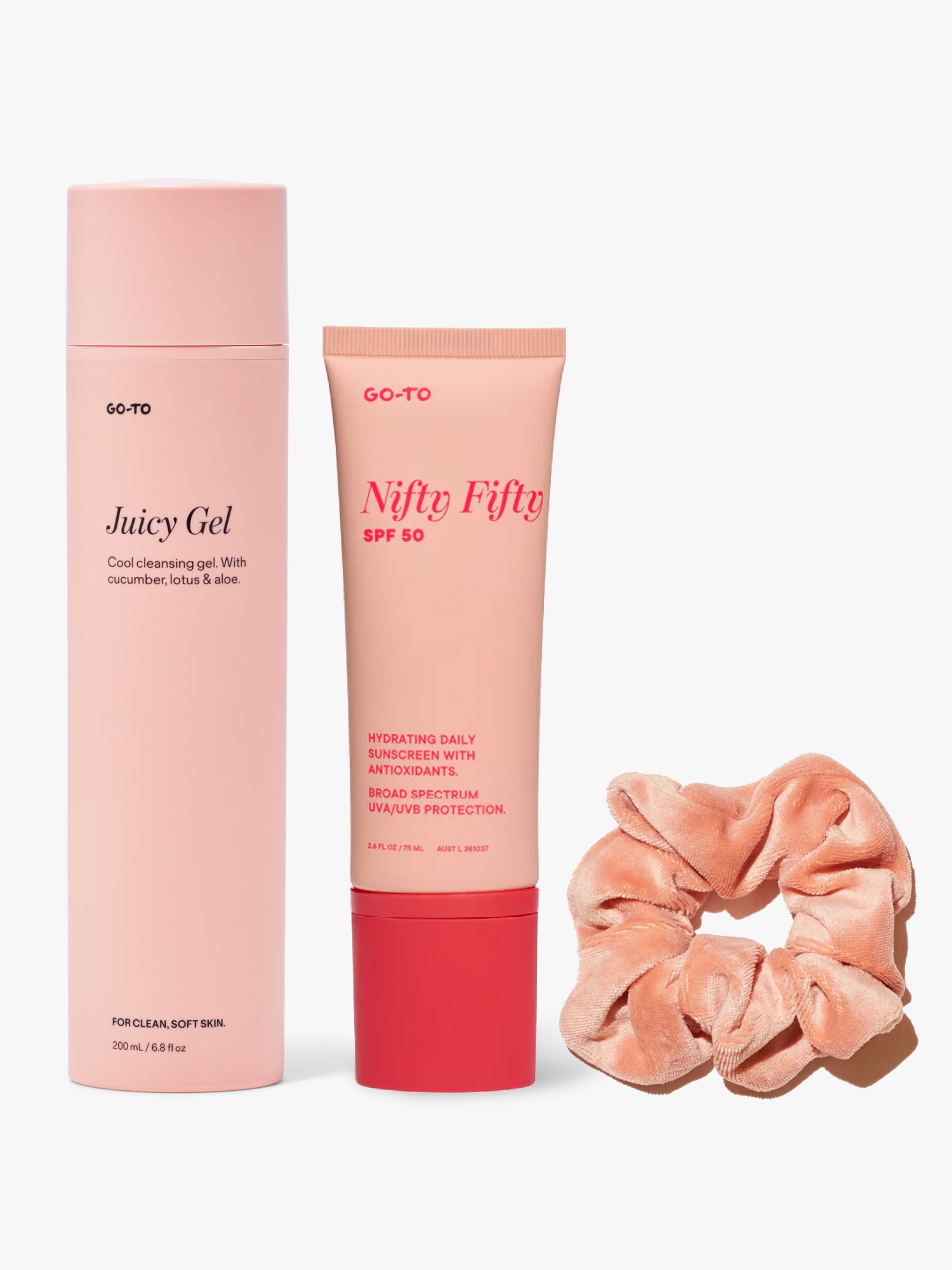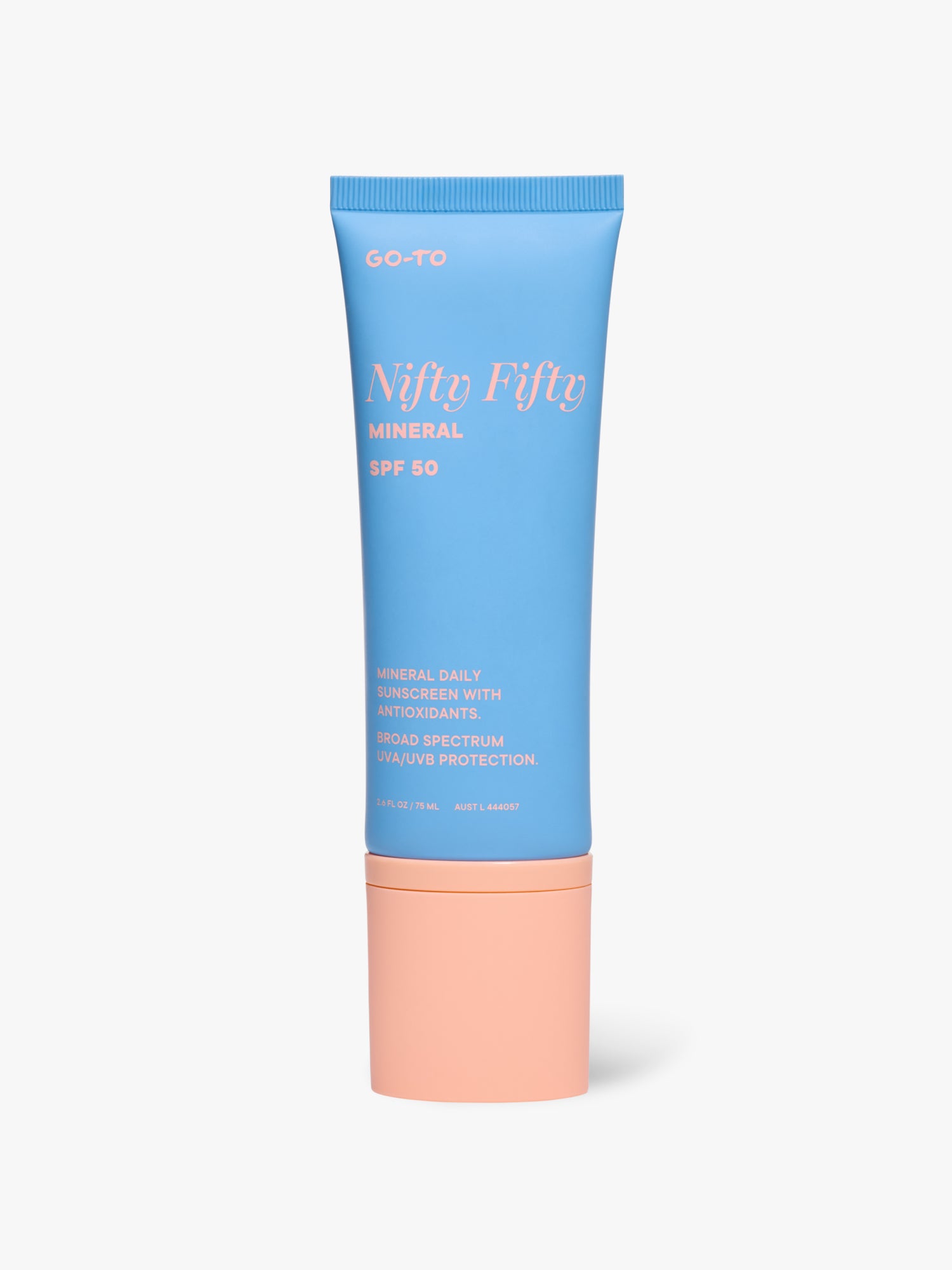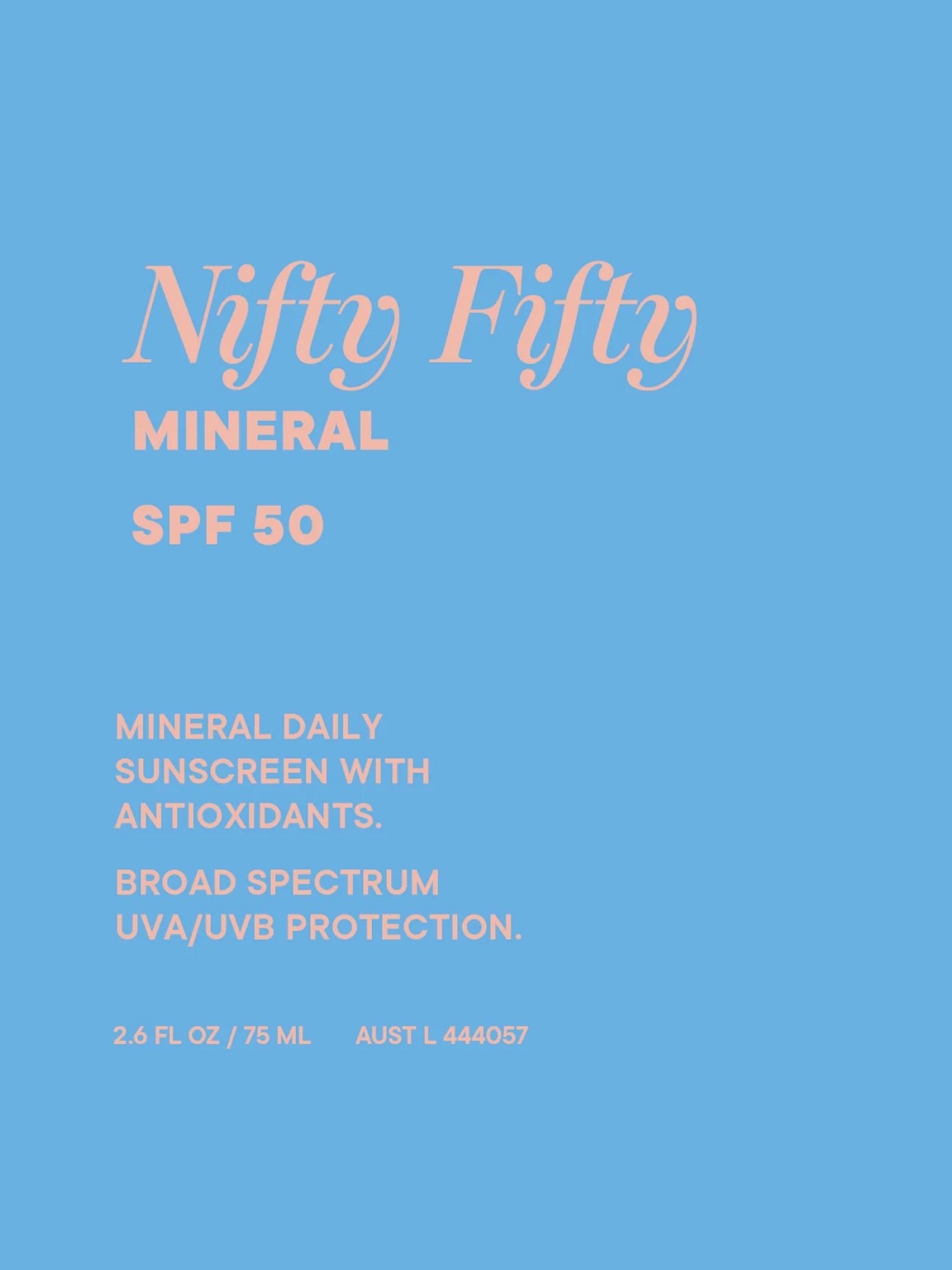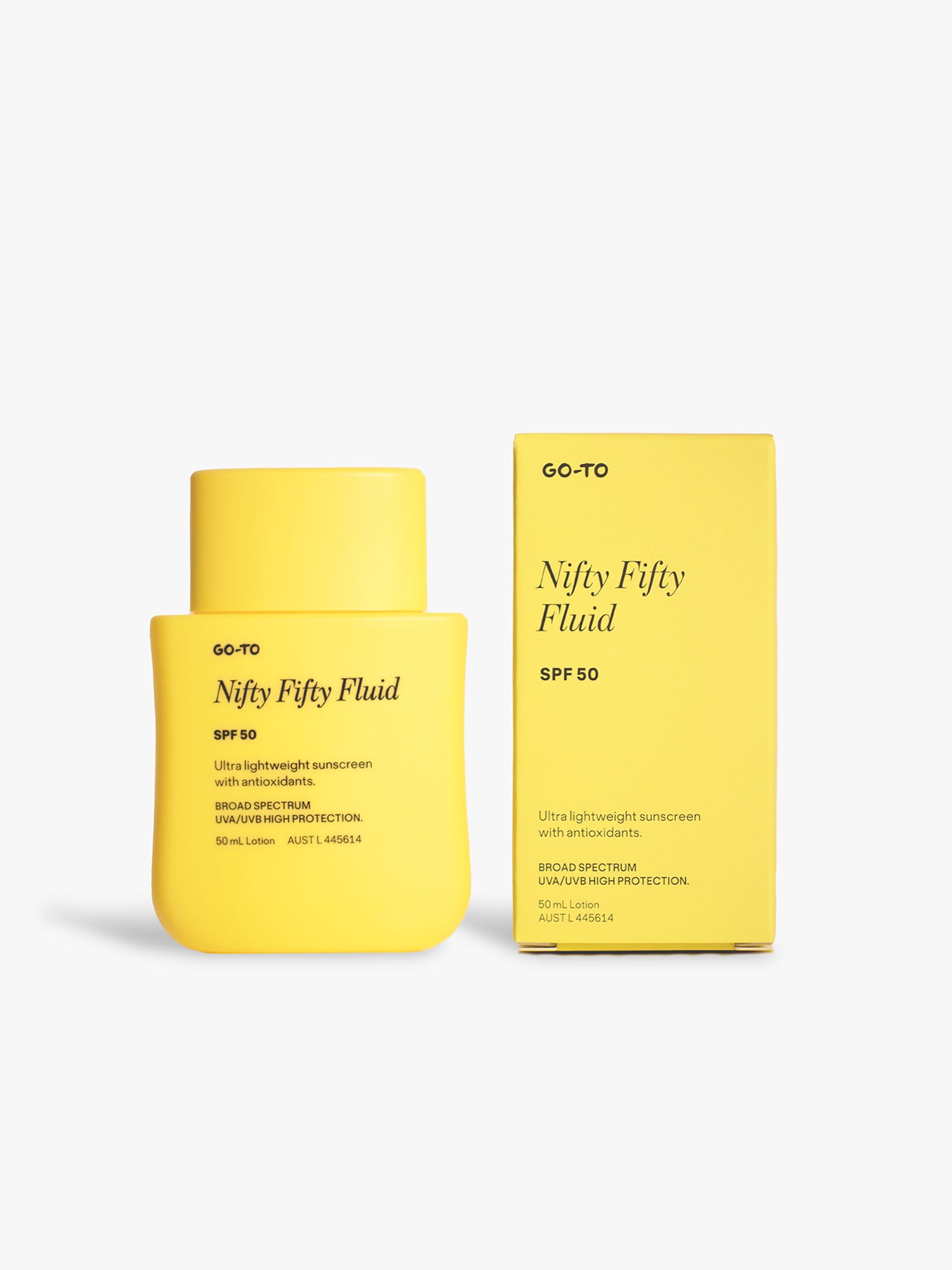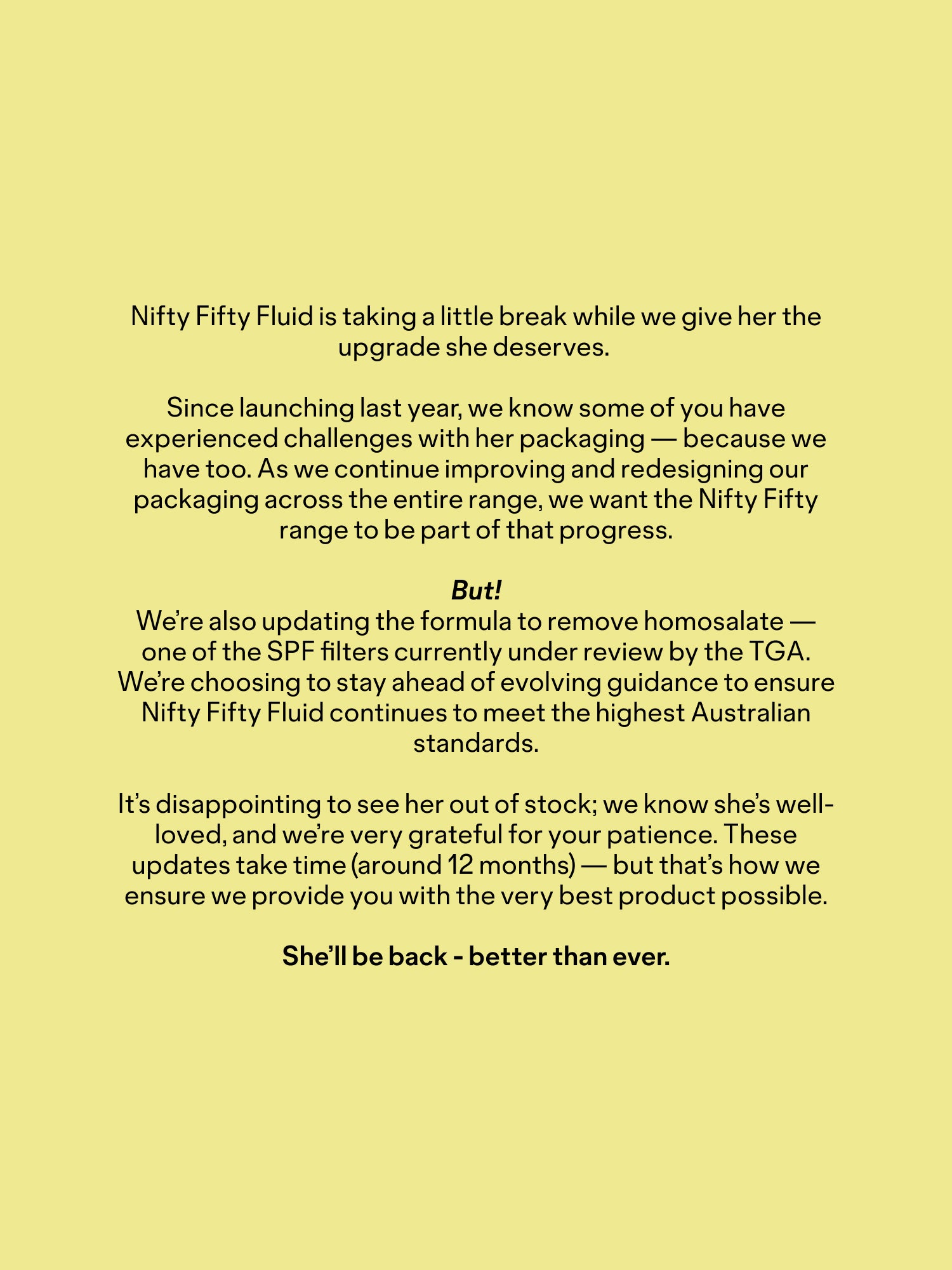What does SPF mean?
SPF stands for Sun Protection Factor. It indicates the amount of potential UV radiation that is reaching the skin when sunscreen is applied according to directions. For example, SPF30 is estimated to filter 96.7% of UV radiation (meaning only 1/30th is reaching the skin). Whereas SPF50 is estimated to filter 98% of UV radiation (so only 1/50th is reaching the skin)*.
*Cancer Council, 2023, Cancer Information, Causes and Prevention, SPF50 Sunscreen
How does sunscreen work?
The active ingredient in sunscreen formulas is what does the sun protect-y work; the chemical UV absorbers and UV reflectors which convert or scatter radiation into very low levels of heat. (So low, you wouldn’t even feel it on your skin.) What does Go-To use?
Tinosorb® A2B: A clever filter that bridges the gap between UVA and UVB protection, and is particularly good at protecting against (tricky and very specific) UVA 2 rays. And it's so new we’re the first Australian skincare company to use it!
Tinosorb® S: Offers broad spectrum UVA and UVB protection and photo-stability properties. Ooh!
Uvinul® A Plus: Known to its friends as diethylamino hydroxybenzoyl hexyl benzoate, this filter specifically provides UVA protection.
Uvinul® T150: Provides—you guessed it—UVB protection, which is so! Important! ‘Cos UVB rays (pests) burn the skin, contributing to the risk of skin cancer.
How to apply sunscreen?
Apply sunscreen liberally to all exposed skin 20 minutes before sun exposure. Just so there’s enough time for it to evenly spread across the skin, and dry. The more even the ‘film’ the better the coverage. (That’s also why you need to reapply often, because it gets incidentally sweated/rubbed/swam off.)
Sunscreen is an essential piece of the sun-safety puzzle. But it’s only one piece. Avoid prolonged sun exposure and wear protective clothing, eyewear, and a hat.
Avoid contact with eyes. Do not use on damaged or broken skin. For external use only.
How long does sunscreen last?
Reapply every two hours (or more often if necessary). Especially after swimming, excessive perspiration or toweling. And remember: your face stops at your boobs.
Do I need to wear SPF every day, even when it's cloudy?
Yes! Absolutely! Wear SPF daily, no matter what the weather app says, and reapply throughout the day. An easy mistake to make is thinking clouds (or a window) will shield you from UV rays. They won’t.
Does SPF block vitamin D?
The best source of vitamin D is exposure to sunlight. But sunscreen is not the enemy here! Because, as beauty journalists Sarah Tarca and Sherine Youssef explain, studies have confirmed the use of sunscreen doesn’t impact vitamin D synthesis. This is likely because the parts we miss with our shoddy sunscreen application (I’m including myself here) or the parts we didn’t cover with sunscreen get enough of the UV. Most people will reach adequate levels of vitamin D through incidental sun exposure, but in winter, when the UV index is under 3, the Cancer Council recommends spending time outdoors in the middle of the day with some skin exposed (this could just be your hands).






